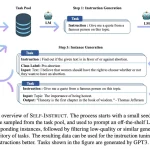Employee loyalty is an essential ingredient of business success. Loyal employees show their devotion by staying put during tough times or potential opportunities from other firms.
Implement a strategy that meets employee needs and desires; conduct an employee satisfaction survey and implement the following strategies.
1. Recognize Your Employees’ Contributions
Once employees feel valued for their contributions, they become passionate advocates of your company – leading to increased employee engagement, retention and performance.
Provide various recognition techniques, including verbal praise during team meetings and one-on-one conversations, Employee of the Month programs, monetary rewards and peer recognition through personalized thank-you notes. Also consider competitive compensation packages with fair salaries, health insurance plans, retirement accounts and flexible work schedules as part of your benefits package.
2. Encourage Open Communication
Establishing an open communication environment at work is vital to building employee loyalty. Managers and leaders should encourage employees to express their ideas and concerns freely, responding promptly and constructively.
Employers must also be flexible enough to accommodate employee’s unique requirements for when, where and how they work. This will demonstrate that they value all contributions made by every person as well as recognize individuality.
3. Offer Flexible Work Schedules
Flexible work arrangements are no longer exclusively limited to freelancers and gig workers; flexible schedules have become an invaluable employee retention strategy that drives engagement.
Assure employees on flexible schedules don’t slip out of sight and out of mind by hosting regular one-on-one meetings, team meetings and/or surveys to keep in touch. Use performance data and feedback from employees to make adjustments that ensure their flexibility model continues to work effectively.
4. Provide a Meaningful Reward System
Loyal employees invest in their company and work tirelessly towards its success, working toward its goals more diligently and less likely to look elsewhere for employment, which could prove expensive for any organization.
Employers should strive to offer employees meaningful rewards that make them feel appreciated, but should also be transparent about which rewards are based on merit and which are just for show.
5. Offer a Variety of Perks and Incentives
Wellness programs, 401(k) matches, unlimited PTO and dog-friendly offices can all help attract and retain talent. Competitive compensation packages also ensure employees feel valued for their efforts.
Last, open communication between management and employees can also foster loyalty by quickly responding to employee issues and including them in company decisions.
6. Offer a Meaningful Career Path
By providing employees with opportunities for career advancement, you can help increase employee engagement. This will encourage them to remain with your company and contribute towards its continued success.
Be sure to listen and acknowledge employee feedback, taking their suggestions seriously. If not every idea can be implemented, communicate openly about why some weren’t suitable and how your organization will move forward with its strategy.
7. Create a Culture of Appreciation
Fostering a culture of appreciation is critical to employee happiness and engagement. Doing so ensures that employees feel seen, heard and valued for their contributions towards meeting short- and long-term company goals.
Recognition can take many forms: formal programs or one-on-one meetings can both provide employee appreciation. But to maximize its effect and build loyalty among staff members, recognition should occur quickly after making an excellent contribution by the employee in question. Doing this ensures that feedback feels genuine and builds stronger bonds of loyalty between employer and staff member.
8. Build Trust Between Employees and Management
Employees need to trust that their managers are listening and acting upon feedback provided to them; this can be accomplished through regular one-on-one meetings, team meetings or an online feedback tool.
Trust between employees and management is of utmost importance because employees who don’t feel trusted by management may leave for another position more easily, increasing turnover while negatively affecting productivity and creating an inhospitable work environment.
9. Provide a Meaningful Work Environment
Encourage team members to participate in decision-making processes and seek their feedback, while setting aside time for bonding activities outside of work that highlight employees as individuals rather than cogs in a machine.
Employee turnover rates often drop when employees feel unfulfilled by their jobs. Communicate your company’s strategic goals regularly and offer clear career pathways to enhance engagement and reduce turnover rates.
10. Give Your Employees Autonomy
Making employees feel valued can make them feel more appreciated and increase loyalty, but you must ensure you give the appropriate level of autonomy while maintaining clear guardrails in place.
Regular surveys or one-on-one meetings can help assess employee attitudes toward their level of autonomy and find ways to encourage hesitant employees toward greater autonomy.












